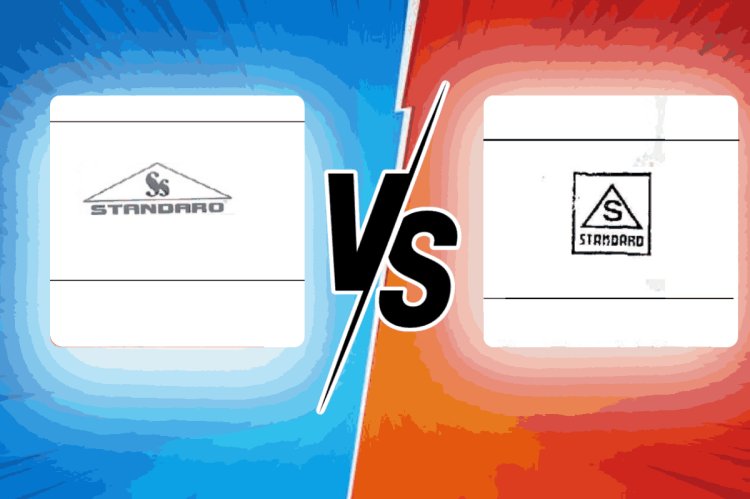Havells India Limited vs. L. Ramesh
The case of Havells India Limited vs. L. Ramesh, CS(COMM) 20/2020, decided on February 24, 2022, concerns trademark infringement and passing off in the electrical products industry. The plaintiff, Havells India Limited, alleged that the defendant, L. Ramesh, had copied their trademark and trade dress, leading to potential confusion among consumers. The court found in favour of the plaintiff, emphasizing the deceptive similarities between the trademarks and the potential for consumer confusion. This judgment reinforces the importance of protecting intellectual property rights and preventing passing off in commercial activities.

Havells India Limited vs. L. Ramesh
CS(COMM) 20/2020
Decided on 24 February 2022
BRIEF FACTS:
The Plaintiff has been operating in the electrical products industry since 1958, providing customers with a wide range of products such as switch gears, fuse gears, cables, insulation wires and miniature circuit breakers, among others. Over the years, they have established a strong reputation for their trademark and logo 'STANDARD' and its variants, which are registered not only in India but also in several foreign countries.
In June 2019, Plaintiff became aware of the Defendant's trademark, which was found to be an exact copy of their own. Further investigation revealed that Defendant had also replicated the packaging and other elements of Plaintiff's trade dress, with the intention of deceiving customers into believing that their products were those of Plaintiff.
Defendant is currently using the disputed trademarks in relation to electrical goods such as MCB and switch gears, which are similar to Plaintiff's business. The Plaintiff is concerned that this could cause confusion among customers and lead to a loss of business for them.
CONTENTION OF THE PLAINTIFF:
The party bringing the legal action referred to as the Plaintiff, asserts its right to safeguard its trademark and logo, which has been in use for a considerable period and has gained significant recognition and reputation regarding electrical products. As the registered owner and first adopter of the trademark 'STANDARD,' the Plaintiff is fully entitled to safeguard its registered trademark, goodwill, and reputation. The Plaintiff contends that the Defendant is also using this trademark in association with electrical goods, including MCBs, switch gears, etc., which are identical to the goods sold by the Plaintiff. Consequently, the Defendant has the potential to mislead customers and damage the goodwill that the Plaintiff has built over the years. Moreover, the Plaintiff alleges that the Defendant's products display trademarks, logos, packaging, and trade dress, which are deceptively similar to those of the Plaintiff, including the use of the flash device symbol in its trademark.
CONTENTION OF THE DEFENDANT:
The defendant in a legal case argued that their mark is a registered trademark in India. They further contended that they had never used the word "STANDARD" in their business operations, but instead used "STANDARO," which is visually and phonetically different from the plaintiff's logo and trademark. They argued that the plaintiff cannot claim a monopoly over the word "STANDARD" as there are many trademarks registered that contain the same word.
The defendant also claimed that the plaintiff's claim is barred due to delay and laches. The plaintiff was aware of the defendant's use of the mark since 2003 but waited until January 2020 to file the suit. Since the limitation period for such cases is three years, the defendant denied having ever used the flash device symbol as a part of their trademark.
COURT JUDGEMENT:
The court examined the logos and trademarks used by both parties and concluded that the defendant's mark was deceptively similar to that of the plaintiff's logo. The triangular box affixed above the word 'STANDARO' with the letters 'SS' within makes the defendant's logo deceptively similar to that of the plaintiff. Although the defendant uses the word 'STANDARO' instead of 'STANDARD' used by the plaintiff, both are written in the same font, the same colour, and in uppercase. As a result, a reader may end up reading the word 'STANDARO' as 'STANDARD' and become confused.
The defendant's logo, a rectangle with a lightning bolt on the letter 'N', is deceptively similar to the plaintiff's logo that also features a lightning bolt on the letter 'N'.
The court has ruled that the term 'STANDARD' is a suggestive mark rather than a descriptive mark. The case involved the doctrine of passing off, where the plaintiff claimed that the defendant's mark was deceptively similar to theirs, causing losses to their business. Although the marks 'STANDARD' and 'STANDARO' are descriptively different, they are similar enough to misrepresent the plaintiff's goodwill and cause damage to their business. The court has ordered the defendant to rectify their mistake of selling their products under the same name as the plaintiff.
CONCLUSION
A recent judgment in the case of Havells India Limited vs. L. Ramesh, CS(COMM) 20/2020, delivered on February 24, 2022, has set a significant precedent in trademark law. The court's decision emphasizes the importance of safeguarding established trademarks against deceptive similarities that could potentially mislead consumers and harm the goodwill built by the rightful owner. The ruling highlights the relevance of the doctrine of passing off in protecting intellectual property rights and ensuring fair competition. This case serves as a reminder to businesses about the importance of conducting thorough trademark searches and protecting their intellectual property assets from infringement and passing off.












